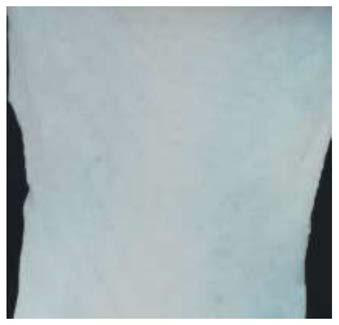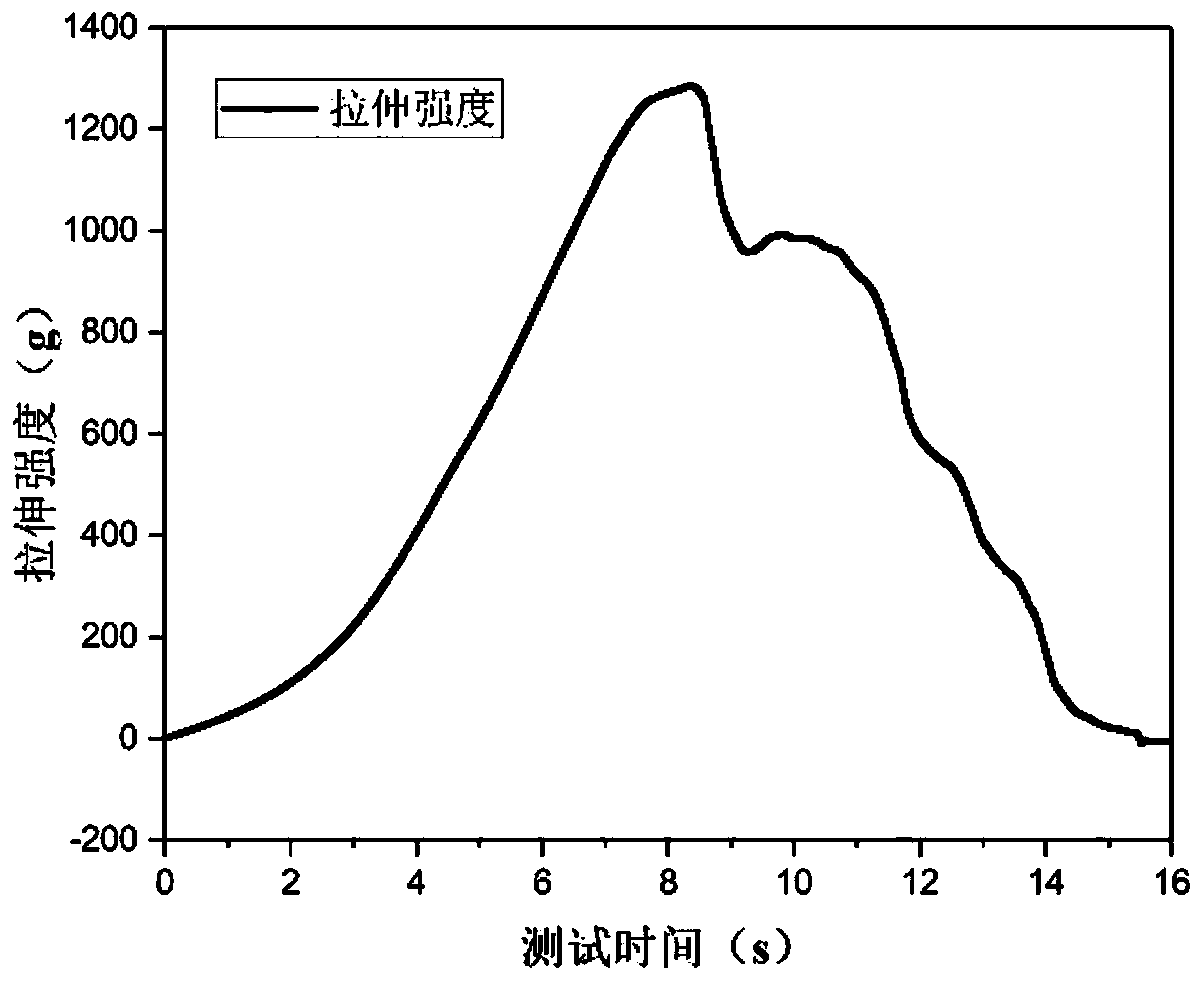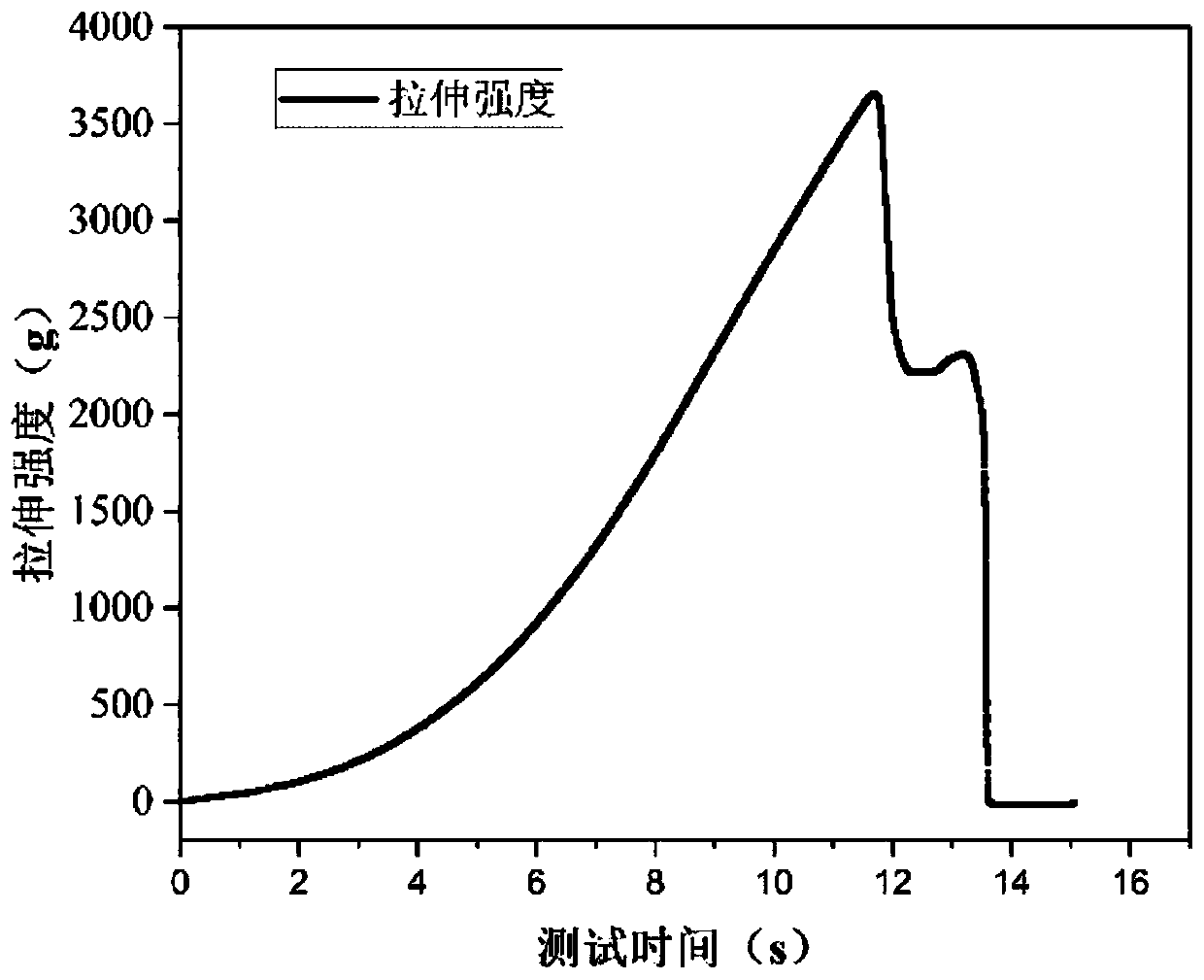Osteoinductive material based on fish skin collagen aggregates and its preparation method and use
An osteoinductive and aggregate technology, applied in the field of biomaterials, bone tissue repair and plastic surgery, can solve the problem of difficulty in reproducing the mechanical properties and biological structure of natural collagen fibers, inconvenience in processing, circulation and use, mining. The long duration of the chemical process can achieve the effect of good mechanical properties, good tissue regeneration, and avoid cumbersome operations.
- Summary
- Abstract
- Description
- Claims
- Application Information
AI Technical Summary
Problems solved by technology
Method used
Image
Examples
Embodiment 1
[0035] After cleaning the fresh grass carp skin at 20±1°C, use 1% (mass fraction) sodium hydroxide solution at 20°C to carry out degreasing treatment for 4 hours, and the ratio of the weight of the fish skin to the volume of the degreasing agent is 1:20 (weight volume ratio), then adopt 2% SDS (mass fraction) solution to soak the fish skin for 4h, the ratio of fish skin weight to SDS volume is 1:10 (weight to volume ratio), wash with distilled water and then use 1% Triton-X Soak fish skin in -100 (mass fraction) solution for 1 hour, the ratio of fish skin weight to Triton-X-100 volume is 1:20 (weight to volume ratio), and the temperature is controlled at 25°C.
[0036] Then, fish skin is placed in the solution that contains 1.5% NaOH (mass fraction) and 1.0% SDS (mass fraction) and soaks 4h, and the ratio of fish skin weight and solution volume is 1:50 (weight volume ratio), fully washed with water, and then placed the fish skin in 5% NH 4 In the Cl (mass fraction) solution, ...
Embodiment 2
[0040] After cleaning the fresh herring skin at 20±1°C, degrease it with 3% (mass fraction) sodium carbonate solution at 20°C for 8 hours, and the ratio of the weight of the fish skin to the volume of the degreasing agent is 1:50 (weight volume ratio), followed by soaking fish skin in 3% SDS (mass fraction) solution for 8 hours, the ratio of fish skin weight to SDS volume was 1:50 (weight to volume ratio), and then washed with 0.5% Triton-X- 100 (mass fraction) solution soaked fish skin for 2 hours, the ratio of fish skin weight to Triton-X-100 volume was 1:20 (weight to volume ratio), and the temperature was controlled at 25°C.
[0041] Then, fish skin is placed in the solution that contains 1.5% NaOH (mass fraction) and 0.5% SDS (mass fraction) and soaks 4h, and the ratio of fish skin weight and solution volume is 1:20 (weight to volume ratio), fully washed with water, and then placed the fish skin in 5% NH 4 In the Cl (mass fraction) solution, the pH is 8.5, and the reacti...
Embodiment 3
[0045] After the fresh cod skin was cleaned at 20±1°C, it was degreased at 30°C with 2% (mass fraction) Pyrex solution for 6 hours, and the ratio of the weight of the fish skin to the volume of the degreasing agent was 1:30 (weight volume ratio), followed by soaking fish skin in 4% SDS (mass fraction) solution for 6 hours, the ratio of fish skin weight to SDS volume was 1:30 (weight to volume ratio), and then washed with 0.8% Triton-X- 100 (mass fraction) solution soaked fish skin for 3 hours, the ratio of fish skin weight to Triton-X-100 volume was 1:30 (weight to volume ratio), and the temperature was controlled at 25°C.
[0046] Then, fish skin is placed in the solution that contains 1.5% NaOH (mass fraction) and 1.0% SDS (mass fraction) and soaks 5h, and the ratio of fish skin weight and solution volume is 1:30 (weight to volume ratio), fully washed with water, and then placed the fish skin in 3% NH 4 In the Cl (mass fraction) solution, the pH is 8.5, and the reaction is ...
PUM
| Property | Measurement | Unit |
|---|---|---|
| particle size | aaaaa | aaaaa |
| particle size | aaaaa | aaaaa |
| particle size | aaaaa | aaaaa |
Abstract
Description
Claims
Application Information
 Login to View More
Login to View More - R&D
- Intellectual Property
- Life Sciences
- Materials
- Tech Scout
- Unparalleled Data Quality
- Higher Quality Content
- 60% Fewer Hallucinations
Browse by: Latest US Patents, China's latest patents, Technical Efficacy Thesaurus, Application Domain, Technology Topic, Popular Technical Reports.
© 2025 PatSnap. All rights reserved.Legal|Privacy policy|Modern Slavery Act Transparency Statement|Sitemap|About US| Contact US: help@patsnap.com



